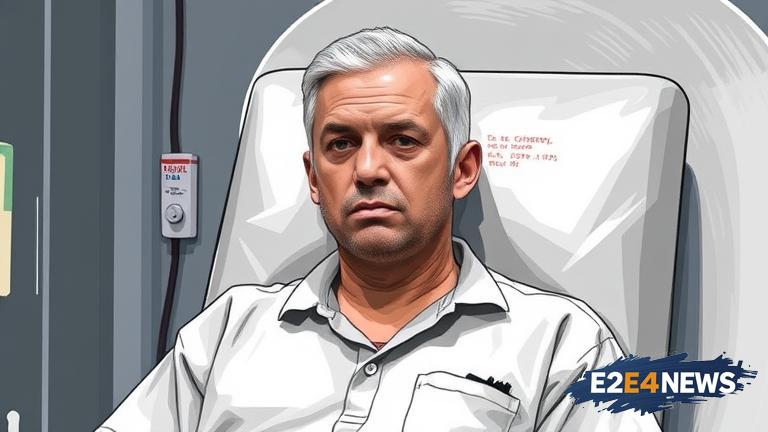A recent court ruling has ordered the state of Tennessee to disable an inmate’s implantable cardioverter-defibrillator (ICD) during execution, raising questions about the ethics of capital punishment. The inmate, who has not been named, is scheduled to be executed by lethal injection. However, the presence of the ICD has complicated the process, as it is designed to regulate the heart’s rhythm and prevent sudden cardiac death. The judge’s ruling has been met with mixed reactions, with some arguing that it is a necessary step to ensure a humane execution, while others believe it is a cruel and unusual punishment. The use of ICDs has become increasingly common in recent years, with thousands of people relying on the devices to manage heart conditions. In this case, the inmate’s ICD is designed to deliver an electric shock to the heart in the event of a life-threatening arrhythmia. However, during an execution, the device could potentially interfere with the lethal injection process, causing unnecessary suffering. The state of Tennessee has argued that disabling the ICD is necessary to ensure a smooth execution, while the inmate’s lawyers have argued that it is a violation of their client’s human rights. The case has sparked a wider debate about the use of capital punishment in the United States, with many arguing that it is a barbaric and outdated practice. Others argue that it is a necessary tool for justice, but that it must be carried out in a humane and dignified manner. The use of ICDs in executions is a relatively new issue, and one that is likely to be the subject of further debate and litigation in the coming years. As the case continues to unfold, it is likely to raise important questions about the ethics of capital punishment and the role of technology in the execution process. The inmate’s lawyers have argued that the state’s plan to disable the ICD is a clear violation of their client’s rights under the Eighth Amendment, which prohibits cruel and unusual punishment. The state, on the other hand, has argued that the plan is necessary to ensure a smooth and humane execution. The case is likely to have significant implications for the use of capital punishment in the United States, and could potentially lead to changes in the way that executions are carried out. The use of ICDs is just one example of the many complex issues that surround capital punishment, and highlights the need for a nuanced and informed debate about the role of technology in the execution process. Ultimately, the decision to disable the inmate’s ICD will depend on a careful consideration of the ethical and legal implications, and will require a thoughtful and compassionate approach to the complex issues at hand.
